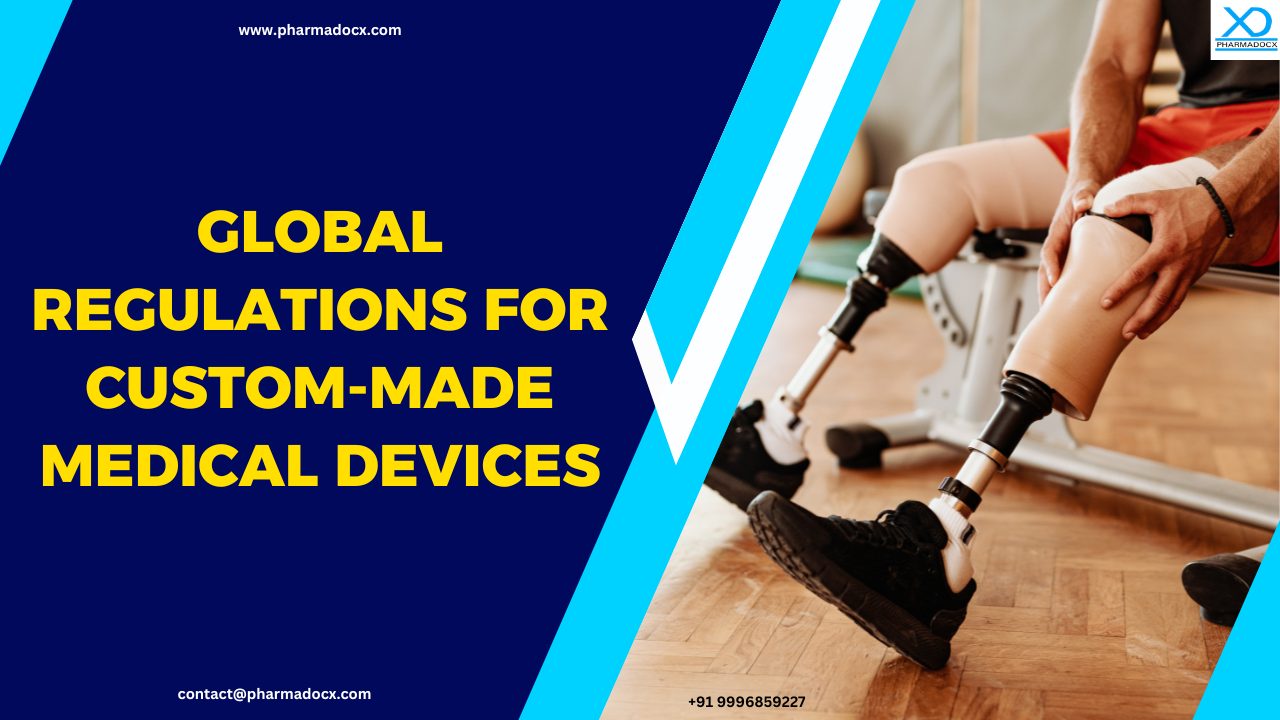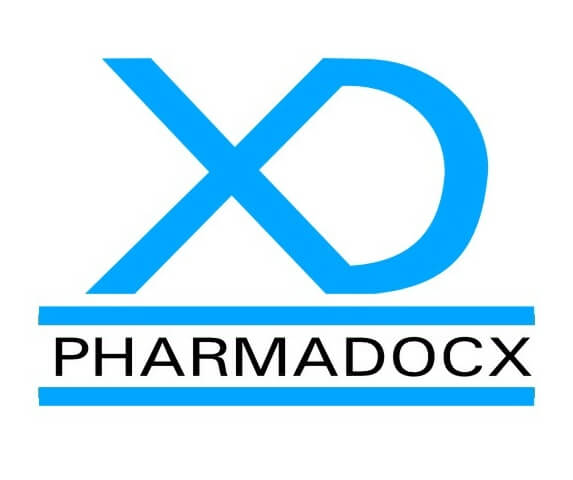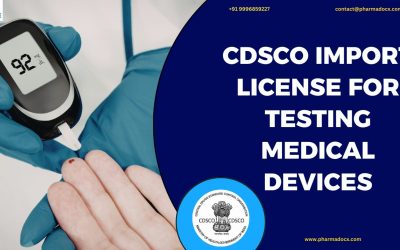Custom-made medical devices have a crucial role in modern healthcare system. Owing to their unique nature, custom-made medical device manufacturers may face several regulatory challenges. This guide will help you navigate the top global regulations for custom-made medical devices.
What are custom-made medical devices?
Custom-made medical devices are devices that have been designed and manufactured specifically for a particular patient. They are designed and developed based on a prescription from an authorized healthcare professional. Custom-made medical devices are designed to address the unique anatomical, physiological, or pathological conditions of the patient they have been intended for. They are not generic off-the-shelf products but have been tailored to meet the unique needs of a patient.
Characteristics of custom-made medical devices
- Not mass-produced: As opposed to standard medical devices, custom-made ones are not manufactured in batches or for general sale. These devices are intended for the exclusive use of that specific patient and are not mass-produced.
- Patient-specific design: Custom-made medical devices are uniquely crafted based on the written prescription from a qualified healthcare professional. They are designed and developed as per an individual patient’s needs and requirements.
- Unique design characteristics: The medical device design incorporates specific features based on the patient’s unique anatomical or pathological condition.
- Addresses specific needs: Custom-made devices address unique anatomical requirements, specific medical conditions, or pathological requirements that standard devices cannot address.
Examples of custom-made medical devices: Prosthetic limbs, customized orthopedic implants, orthoses, dental crowns, dental implants, orthopedic insoles, etc.
Even though they are not mass produced, compliance with regulations for custom-made medical devices is a mandatory requirement for patient safety and improved patient outcome. Hence, manufacturers of these medical devices will have to comply with the applicable regulatory guidelines.
Demand for custom-made medical devices
Certain medical conditions necessitate tailored solutions that standard mass-produced devices cannot adequately address. Owing to increasing awareness, technological advancements, and limitations of mass-produced devices, custom-made medical devices are in high demand. Additionally, for prosthetic, orthopaedic implant, and personalized therapy fields, devices tailored to individual patient needs are in demand. Moreover, with advances in medical device manufacturing technology, such as 3D printing, custom-made medical devices are becoming even more readily available. Factors driving the demand for custom-made medical devices:
- Improved outcomes: Custom-made devices can lead to better patient outcomes, enhanced functionality, and improved comfort compared to generic devices. Owing to their ability to improve patient outcome, custom made devices are in high demand.
- Addressing unique patient requirements: Certain medical conditions require devices that precisely fit a patient’s anatomy or physiology. In these cases, mass-produced devices cannot often meet patient requirements.
- Advancement in manufacturing processes: 3D printing technology has been incorporated into medical device manufacturing. It is enabling the creation of complex, patient-specific medical devices, thereby making custom-made devices more accessible and efficient. Additionally, new materials with improved biocompatibility and mechanical properties are further improving the custom-made medical devices manufacturing process. Furthermore, point-of-care manufacturing is being used to manufacture devices closer to the point of care, such as hospitals. This is leading to faster turnaround times and improved care delivery.
- Aging population: An aging global population, with a higher prevalence of chronic diseases, is driving the demand for specialized medical interventions and devices. Customized solutions offered by custom made devices can cater to this need.
Globally, the medical device market is experiencing rapid growth and expansion. Within this market, the demand for custom-made medical devices is also on the rise. Hence, globally regulations for custom-made medical devices are also in place to regulate the quality of devices reaching the patients.
Regulations for custom-made medical devices
Medical devices are of pivotal importance in the healthcare industry. They are used to diagnose, monitor, and treat patients. Hence, their quality, efficacy, and safety will impact patient outcome. Thus, stringent guidelines are in place to regulate and monitor the quality, efficacy, and safety of medical devices entering the market. Custom-made medical devices are also regulated by these medical device regulatory guidelines. However, unlike mass produced generic medical devices, slightly different regulations for custom-made medical devices are in place.
- United States (USA): Custom-made medical devices are exempt from full FDA approval. However, they must comply with design controls and good manufacturing practices (GMPs) guidelines.
- European Union (EU): Per EU guidelines, custom-made medical devices do not require notified body approval. However, manufacturers of these devices must maintain a Declaration of Conformity and a comprehensive technical file.
- Egypt: The Egyptian Drug Authority (EDA) regulates all medical devices covering custom-made ones under its national framework. It requires custom made medical devices to adhere to safety and quality requirements intended for medical devices entering its market.
- South Africa: In South Africa, the South African Health Products Regulatory Authority (SAHPRA) governs all types of medical devices, including custom-made ones. It requires licensing and compliance with quality assurance guidelines.
- India: In India, custom-made devices are regulated under the Medical Device Rules, 2017. Manufacturers are required to obtain the necessary license under the Central Drugs Standard Control Organization (CDSCO) guidelines by complying with its safety and quality standards.
- Canada: Health Canada governs all medical devices, including custom made ones, entering its market.
We have provided an overview of the different regulations for custom-made medical devices in different markets globally. For applicable regulations for any specific market or requirements for a particular device, feel free to contact us.
What are the challenges in complying with the regulations for custom-made medical devices?
Navigating the regulations for custom-made medical devices may be challenging for manufacturers, especially compared to mass-produced devices. Notably, EU and US regulatory bodies have some exemptions for custom-made medical devices. However, the regulatory landscape is complex and requires careful management for regulatory approval and market access.
6 common challenges faced
- Evolving regulatory landscape: Medical device regulations, including those for custom-made ones, are constantly changing. These changes are required to adapt to new technologies and for improved patient safety. Manufacturers must stay abreast of these updates and adapt their processes and modify their devices accordingly. This can be significantly challenging for single use custom made device manufacturers.
- Lack of notified body oversight in the EU: As opposed to mass-produced medical devices, custom-made medical devices do not require notified body approval. Hence, manufacturers are responsible and accountable for the quality, safety, and efficacy of the device and have to self asses the medical device. In case of custom-made devices, special emphasis is placed on post-market surveillance and internal quality management systems, as the quality onus lies with the manufacturer.
- Accessibility issues: Custom-made devices are often urgently required by patients. However, regulations for custom-made medical devices can slow down the time the device needs to reach the patients. Even though the manufacturer does rapidly manufacture the medical device, regulatory compliance requirements may hamper the timely access to the device.
- Raw material quality control and supplier management: Finding high-quality and consistent materials and components for custom-made devices can be challenging, especially when dealing with specialized or customized components from various suppliers. Manufacturers need to establish strong supplier management processes to guarantee material compliance and avoid defects in the final product.
- Risk management: Custom-made medical devices have unique risks due to their personalized nature and potential for bespoke manufacturing processes. Manufacturers must establish robust risk management strategies to identify and mitigate potential hazards.
- Cybersecurity for connected devices: With the increasing integration of digital technologies and connectivity in medical devices, cybersecurity has become a critical concern. Custom-made medical devices with software and remote monitoring capabilities are susceptible to cyber threats. These devices require manufacturers to implement robust cybersecurity measures to comply with relevant regulations.
Navigating the regulations for custom-made medical devices can be a tricky task. Our team of experts will help you easily navigate the regulatory requirements applicable for your custom-made medical device. Simply drop an email at [email protected] or call/Whatsapp on 9996859227 to get started.





